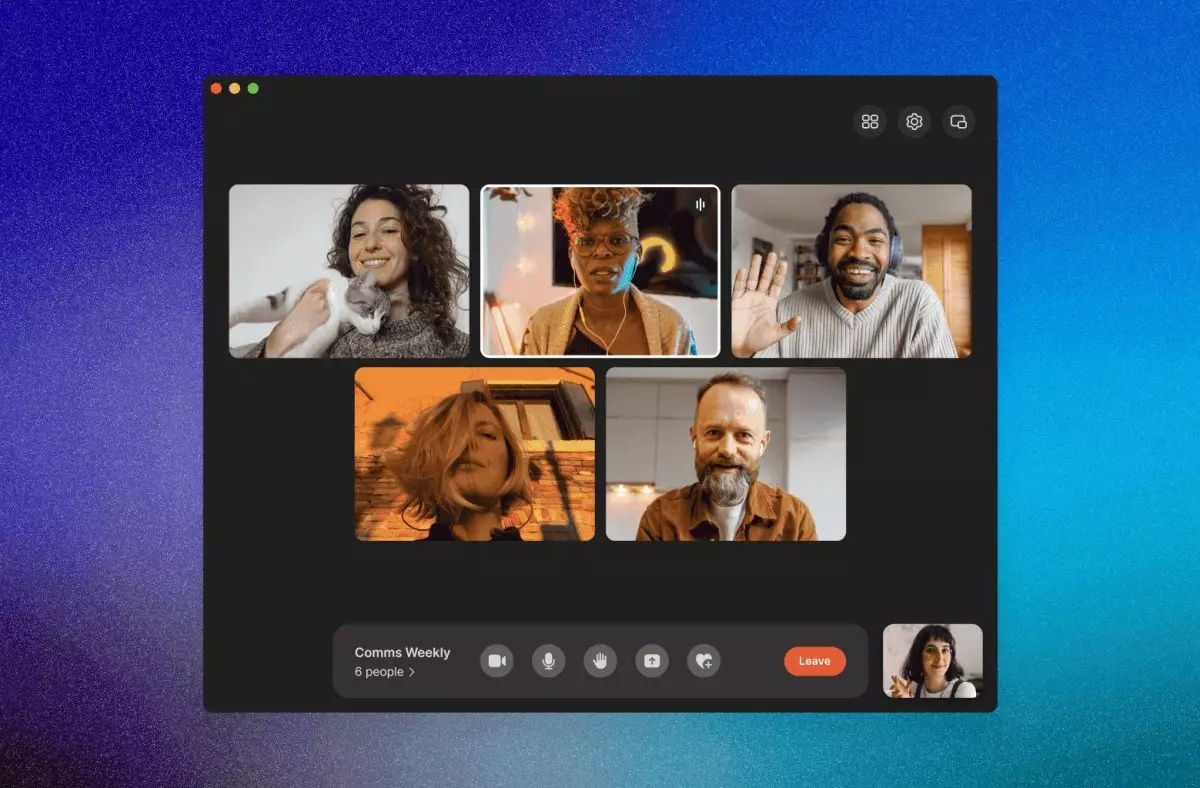In an era marked by the widespread adoption of remote communication tools, Signal—an app widely recognized for its commitment to user privacy—is stepping up its game. Launching a suite of new features aimed at enhancing user experience for video calls, Signal is positioning itself as a competitive alternative to established video conferencing services such as Zoom, Google Meet, and Microsoft Teams. As society increasingly relies on digital platforms for communication, Signal’s innovations arrive at a crucial juncture.
Central to Signal’s latest update is the introduction of a dedicated “Calls” tab, which serves as a centralized hub for managing video call activities. This feature simplifies the user experience by enabling users to initiate calls, create reusable links, and keep track of their call history—all in one place. By facilitating the creation of shareable links, Signal mirrors the functionality found in its competitors, allowing users to invite participants without the need for extensive group setups. This innovative approach is particularly advantageous for businesses and teams that engage in recurring meetings, as they can easily distribute the same link for each session.
Users can also benefit from fundamental management tools that allow them to name calls, control access, and manage attendee participation. Such controls enable hosts to curate their meetings thoughtfully by allowing or denying entry to specific individuals, as well as removing disruptive participants if necessary. In a notable addition reminiscent of classroom dynamics, a hand-raising feature enables participants to signal when they wish to contribute to the discussion, promoting a more organized dialogue.
One of the strongest selling points of Signal is its staunch commitment to privacy. As digital communication becomes increasingly scrutinized, users are gravitating toward platforms that prioritize data protection. Signal asserts that while video calls have become an essential mode of communication, their promise of a secure and private space remains paramount. With features that enhance usability without compromising on encryption and security, Signal sets itself apart in a market saturated with less secure alternatives.
The app’s versatility is further evident through its compatibility across different devices. Signal’s improvements include features that adapt perfectly whether users are on mobile or desktop, allowing flexibility in how meetings are experienced. The option for varied display modes—grid, sidebar, or speaker-view—ensures users can customize their experience to suit their preferences, thereby maximizing engagement during calls.
As video conferencing continues to evolve, Signal’s latest features are indicative of a broader trend prioritizing user-centric enhancements in communication platforms. While competitors like WhatsApp have already begun implementing similar features—such as screen sharing and support for larger participant numbers—Signal’s approach maintains focus on privacy, setting a unique tone in a crowded marketplace.
Signal’s update not only elevates its standing among messaging apps but also reinforces its role as a leader in privacy-focused digital communication. As organizations, friends, and families adapt to new communication norms, Signal assures users that a safe space can be created for meaningful interactions, solidifying its relevance in our increasingly virtual world.

